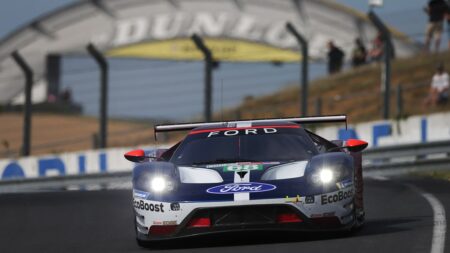
McLaren wants to win 2027 Triple Crown with Le Mans Hypercar
McLaren will enter the Le Mans Hypercar class for the very first time in 2027 – and is gunning to win motor sport's 'Triple Crown' all in one year
Porsche begins 919 tribute year by smashing Lewis Hamilton’s Spa-Francorchamps Formula 1 record
Porsche set a new track record at Spa-Francorchamps with its evolved 919 Hybrid on Monday. Works driver Neel Jani lapped the 7km Belgian Grand Prix circuit in 1min 41.770sec, the 34-year-old beating Lewis Hamilton’s record – set in the Mercedes W07 Formula 1 car in 2017 – by 0.783sec. Jani, according to Porsche, achieved a top speed of 223mph with an average speed of over 152mph.
“The 919 Evo is brutally impressive,” said Jani. “It is definitely the fastest car I ever drove. The grip level is at a fully new dimension for me, I couldn’t imagine this amount beforehand. The speed at which everything happens on a single lap with the 919 Evo is that fast that the demand on reaction speed is very different to what I was used to in the World Endurance Championship. We are not only faster than the F1 pole from 2017; today’s lap was 12 seconds faster compared to our WEC pole position from last year! We have had three very intense days at Spa. Today I knew on the very first lap in the morning that the car’s performance was super. The race engineers did a great job setting up the car and the Michelin tyres are sensational. A big thank you to Porsche for this experience.”
Porsche won the Le Mans 24 Hours three times from 2015-17, with three drivers’ championships, three constructors’ championships and 17 WEC race wins with the 919.
The manufacturer, which left WEC in 2017 to prepare for a Formula E entry, doesn’t seem quite ready to say goodbye to the 919. This lap record comes as part of its 919 Tribute tour, in which Porsche will attempt to break circuit records across the world with its modified 919.
The 919 Evo, according to Porsche’s chief LMP1 race engineer, is unchained by regulations in order to harness more of its potential.
“We all knew, no matter how successful the 919 Hybrid was, it could never show its full abilities. Actually, even the Evo version doesn’t fully exploit the technical potential” explained Stephen Mitas. “This time we were not limited by regulations but resources. It is a very satisfying feeling that what we’ve done to the car was enough to crack the Formula 1 record.”
The car is still powered by a two-litre turbocharged V4 engine with two different ERS units, harvesting brake and exhaust energy to provide power to all four wheels and store extra power in a liquid-cooled lithium-ion battery. The Evo version of the 919 uses more than the WEC’s mandated amount of 1.784kg/2.464l of petrol per lap to deliver a quoted 720hp, rather than the 500 it produced during the 2017 WEC season.
Furthermore, instead of the 6.37 megajoules of energy produced by its ERS systems at Spa in 2017, Jani had 8.49 megajoules to play with on Monday, a 10 per cent increase from 400 to 440hp.
What’s clear at a first glance is that the aerodynamics are completely changed from the WEC car as well, with a larger front diffuser, huge rear wing – both of them utilising active DRS – and new sideskirts, as well as a new floor. Porsche says that the consequent increase in downforce is a staggering 53 per cent.
A brake-by-wire system, new suspension wishbones, and a 39kg decrease in weight (to 849kg) by removing air conditioning, the windscreen wipers, lights and pneumatic jack, helped this 919 to beat the Mercedes F1 car’s time.
The 919 Tribute tour will continue at the at the Nürburgring 24 Hours on May 12, the Goodwood Festival of Speed (July 12-15) and then the Festival of Porsche at Brands Hatch on September 2. All eyes will surely be on the car to see if it can break Stefan Bellof’s record at the Nordschleife, set in 1983.

McLaren will enter the Le Mans Hypercar class for the very first time in 2027 – and is gunning to win motor sport's 'Triple Crown' all in one year

A Ford GT40 MkII which managed 12 laps at the famous 1966 Le Mans 24 Hours has become been auctioned for a record amount

Two of racing's biggest rivals are on collision course once more, with the Ford v Ferrari battle for overall Le Mans victory due to resume in 2027 after six decades — and Ford is already talking up the fight

Ford will develop a new top-tier sports car to compete for overall victory in the Le Mans 24 Hours and the World Endurance Championship Hypercar class from 2027 onwards, aiming to continue where its GT40 left off in the 1960s